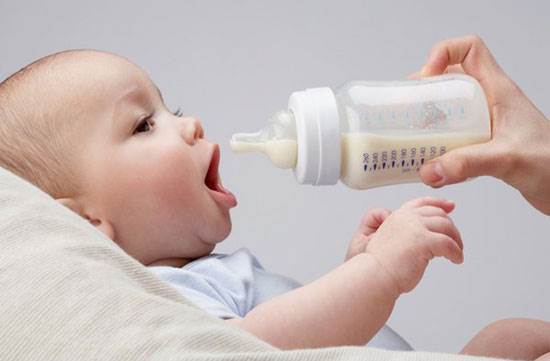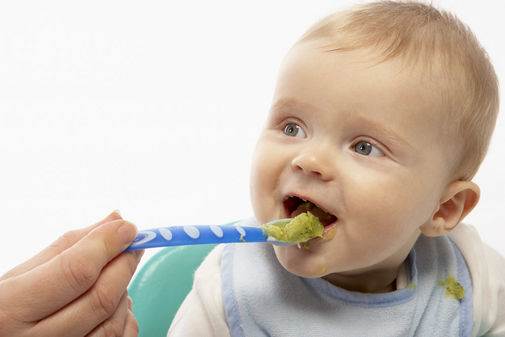Whether you consider breastfeeding as the best
way to feed your baby or you feel it is a great experience, weaning can cause
anxiety for you. It is the end of one period and the beginning of another,
because your baby starts getting the nutrition from sources other than breast
milk. According to experts, the question of weaning time does not have an exact
answer. Considering several factors will help you decide if it's the time.

According
to experts, the question of weaning time does not have an exact answer
Expert recommendations
When your baby experiences the first or two
years of his life, breast milk goes from extremely essential to beneficial, and
to unnecessary. According to experts, you should breastfeed until your baby is
at least 6 months old. Then, you combine breast milk with other appropriate
foods from the ages of 6 months to 1 year. You can choose to wean your baby
after he is one years old, but continuing to breastfeeding at this point is
completely normal. As long as your milk continues to flow and your baby still
like breastfeeding.

According
to experts, you should breastfeed until your baby is at least 6 months old
Factors to consider
Once breast milk is no longer necessary about
nutrition for your baby - after his first birthday - check out the effects of
breastfeeding to your life. A mother who has returned to work can feel very
difficult when she must rush home to breastfeed or pump milk between meetings.
The baby’s reaction to breastfeeding is something else to consider. If your
baby does not seem interested or becomes fussy every feeding, he can tell you
that he no longer needs to be breastfed. The baby's father may also feel
abandoned from feeding process, and weaning the baby will allow the father to
become an equal partner in feeding the baby.
The weaning process
Weaning the baby will probably take several
months. Start slowly, by first skipping a feeding that your baby will not see
lacking much. The feedings prove most comfortable for you and your baby - such
as bedtime feeding or the first feeding in the morning - should be left to the
end. The mid-morning or early afternoon feeding may be the first one that you
can stop, but this is only decided by you and your baby. You should take your
baby to one place that will not remind him about feeding instead of feeding him
for the mid-morning or early afternoon feeding. Take him on a walk or start
playing in the living room. If he seems hungry or cranky, you should give him a
snack. Give your baby 1 week or more to adjust to this new schedule, then skip
another feeding and replace it with solid food. If you feel you can’t leave for
breastfeeding, maintain a daily feeding until you feel ready to leave it. You
may need to pump milk every day to maintain your milk flow.

Weaning
the baby will probably take several months
Things to consider
Once you have decided to wean, think about
what is taking place in your baby’s life. Experts suggest you postpone weaning
if one major change affects the baby's life, such as moving house or to a new
childcare. You should delay the process if one major change is taking place.
Experts also suggest you not wean if you or your baby are sick or he is
teething. The weaning plan can be beyond your control if your milk flow slows
or stops. If this happens before your baby's first birthday, talk to your
doctor about supplementing your baby's diet with formula milk fortified with
iron. A mother may have mixed feelings about this process, and may soon miss
the closeness that breastfeeding brings. You should spend more time cuddling
your baby and relying on the support of your husband can ease during this
transition. In addition, some babies wean themselves from breast milk as they
grow to any stage, such as when they start crawling and walking. If this
happens, this is perfectly natural, and you can feel happy because your baby
has decided to expand his world according to his own schedule.